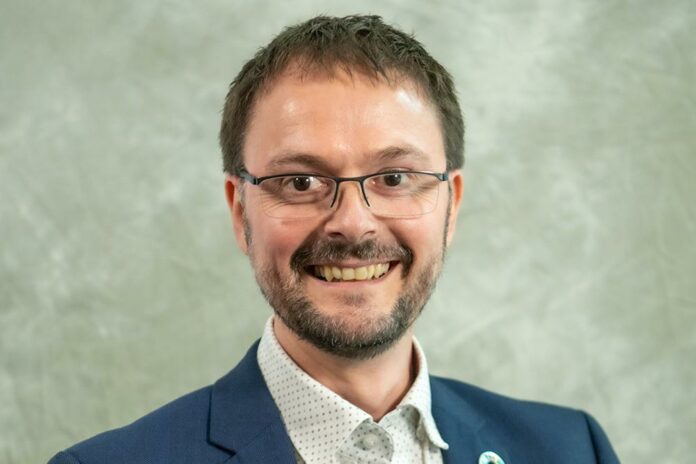It’s a well-known saying that a problem shared is a problem halved. So when it comes to dealing with the complexities of the railways in the UK, collaboration can only be a good thing for rail projects.
Agility and flexibility have been vital for everyone working in the rail industry during the coronavirus crisis, but it is doing so collectively that is changing the sector for the better.
Arup’s Andrew Belcham has spoken with railbusinessdaily.com about the need for thinking differently, collaboration and how we might measure our project outcomes.
The company covers every element of rail consultancy and engineering – from high-level strategy and planning to detailed design and specialist expertise in civils, rail systems and operations.
“I’m quite positive there is an opportunity in all this recent disruption because there are new problems to solve and we are solving them with our clients and our supply chain partners in ways we never imagined just three months ago. Just think what we could be achieving in another three months.”
One of the concepts Andrew is particularly interested in is the previous focus on the ‘what’ when it comes to projects, with a push to shift this conversation more to the ‘why’ and branching out the meaning of affordability beyond just the budget, but with more focus on other sustainability aspects such as the carbon footprint.
He said: “Measurement of total value on our rail projects means shifting our time, cost, quality affordability measures into something different. We should really be talking about the optimisation of our social value, carbon footprint and the cost.
“There’s a wide discussion going on, as to what does total value mean and if we are articulating it in a way that clients would collaboratively engage – there’s lots of dimensions to it in terms of the process of circular economy and circular thinking.
“It’s getting people to talk about the outcome and process of affordable sustainability, rather than the output of our projects – the ‘why’ rather than the ‘what’.
“It is about bringing back the social value of what it brings to the users and the passenger benefits, the ‘why’ we are doing it, as well as the neighbours that sit alongside the railway.”
A key part of the concept and the changes needed for the industry is the earlier and closer collaboration of those working on the projects.
Early Contractor Involvement is something that Rob Cairns from Network Rail spoke passionately about to railbusinessdaily.com last month. The industry is already reaping the benefits from this more open and honest approach.
One area which is accelerating is the digital transformation of the railways. Arup have ‘SoundLabs’ and ‘iLabs’ across the country at which public, stakeholders and project teams can come and interact in a virtual environment with planners and designers to experience, interact with and feedback their thoughts on infrastructure, buildings and train interiors before they are built.
Andrew said: “People have talked about digital transformation a lot. It’s happening and we are doing it, but I do think it has accelerated during these last few months. It’s given everyone the confidence to transform and do things that they’ve not done before.
“For us the digital experience of our design really has come to the fore and it is allowing us to express our work in many different ways for people to experience it – it might be with data visualisation or with augmented reality. It gives us a better insight in what we’re trying to achieve and allows us to make better, data driven decisions.”
Andrew said: “It enables a different kind of early contractor involvement, a more intelligent, whole supply chain early involvement and it is really about collaborating more with more of your partners earlier and throughout the entire process.
“So those fantastic suppliers right at the end, bring them in right at the beginning so their innovation, and ideas that are driving the design solution rather than them trying to supply or fabricate it.
“Certainly, for the TransPennine Route Upgrade, it is part of what we are doing. It has brought in supply chain innovation right at the start of what we have been doing with a breadth of thinking.
“What I’m really interested in is what if you bring in the later suppliers, fabricators, in at the front end and how do you maintain the design integrity, the thinking that we’re doing later on, so then the early thinking concept is replicated for later thinking towards the back end of the programme.
“The cycle at the moment is bringing the latter end supply chain earlier, but that isn’t the whole cycle. How do we get everybody involved in the entire period – that is where the Transpennine Route Upgrade collaboration work is and where we are really focussing now.
“This more holistic collaboration means we can arrive at a sustainable and affordable solution far more quickly, and it can be built more safely with better user experience and increased social value.”
Andrew Belcham, Arup, visit www.arup.com







































 0113 2082620
0113 2082620 info@railbusinessdaily.com
info@railbusinessdaily.com 15 Mariner Court, Wakefield WF4 3FL
15 Mariner Court, Wakefield WF4 3FL

